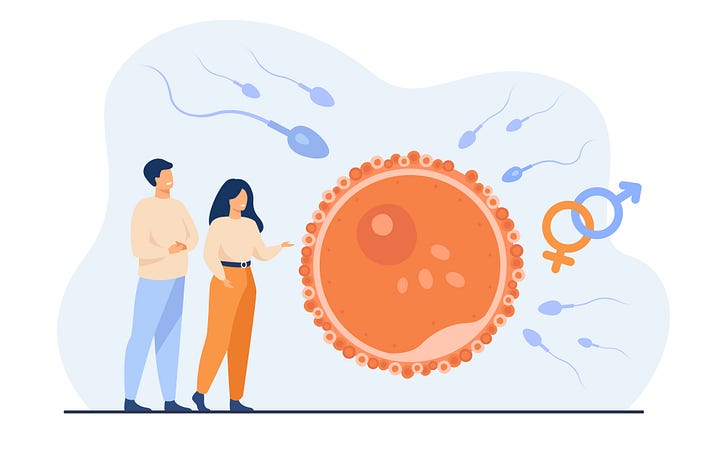What is IVF (In Vitro Fertilization)?
In Vitro Fertilization, commonly known as IVF, is a revolutionary assisted reproductive technology (ART) that has provided hope and fulfilled dreams of parenthood for countless individuals and couples around the world. This medical procedure involves a series of carefully orchestrated steps to facilitate conception for those struggling with infertility or certain medical conditions.

How Does IVF Work?
1. Ovulation Stimulation:
— The process begins with the administration of fertility medications to stimulate the ovaries to produce multiple mature eggs. Monitoring through blood tests and ultrasounds helps track the progress.
2. Egg Retrieval (Follicular Aspiration):
— Once the eggs have sufficiently matured, a minor surgical procedure is performed to retrieve them from the ovaries. This is done under sedation or anesthesia for the comfort of the patient.
3. Sperm Collection:
— A sperm sample is collected from the male partner or a sperm donor. The sperm is then processed and prepared for fertilization.
4. Fertilization:
— In the laboratory, the eggs and sperm are combined in a controlled environment. This allows for fertilization to occur, resulting in the formation of embryos.
5. Embryo Cultivation:
— The resulting embryos are carefully monitored and nurtured in a specialized environment for a few days. The embryologist assesses their quality and development.
6. Embryo Transfer:
— After a few days of cultivation, one or more healthy embryos are selected for transfer into the woman’s uterus. This is a relatively painless procedure, similar to a regular gynecological exam.
7. Luteal Phase Support:
— Medications are prescribed to support the uterine lining and encourage embryo implantation.
8. Pregnancy Testing:
— About 10 to 14 days after the embryo transfer, a blood test is performed to determine if pregnancy has occurred.
Who is IVF Suitable For?
IVF may be recommended for individuals or couples facing various fertility challenges, including but not limited to:
- Blocked or damaged fallopian tubes
- Unexplained infertility
- Male factor infertility (such as low sperm count or motility)
- Endometriosis
- Polycystic Ovary Syndrome (PCOS)
- Advanced maternal age
- Previous unsuccessful fertility treatments
Conclusion:
In Vitro Fertilization has provided hope and a pathway to parenthood for countless individuals and couples worldwide. It’s a remarkable testament to the advances in reproductive medicine, offering a chance at realizing the dream of having a family for those facing infertility challenges. While the journey may have its complexities, the potential reward of a healthy, happy family is immeasurable. For those seeking the best fertility hospital in Madurai, consulting with a reproductive specialist to determine if IVF is the right option for your unique situation is a crucial step towards realizing your dreams of parenthood. Always remember, you’re not alone on this journey.
Comments
Post a Comment